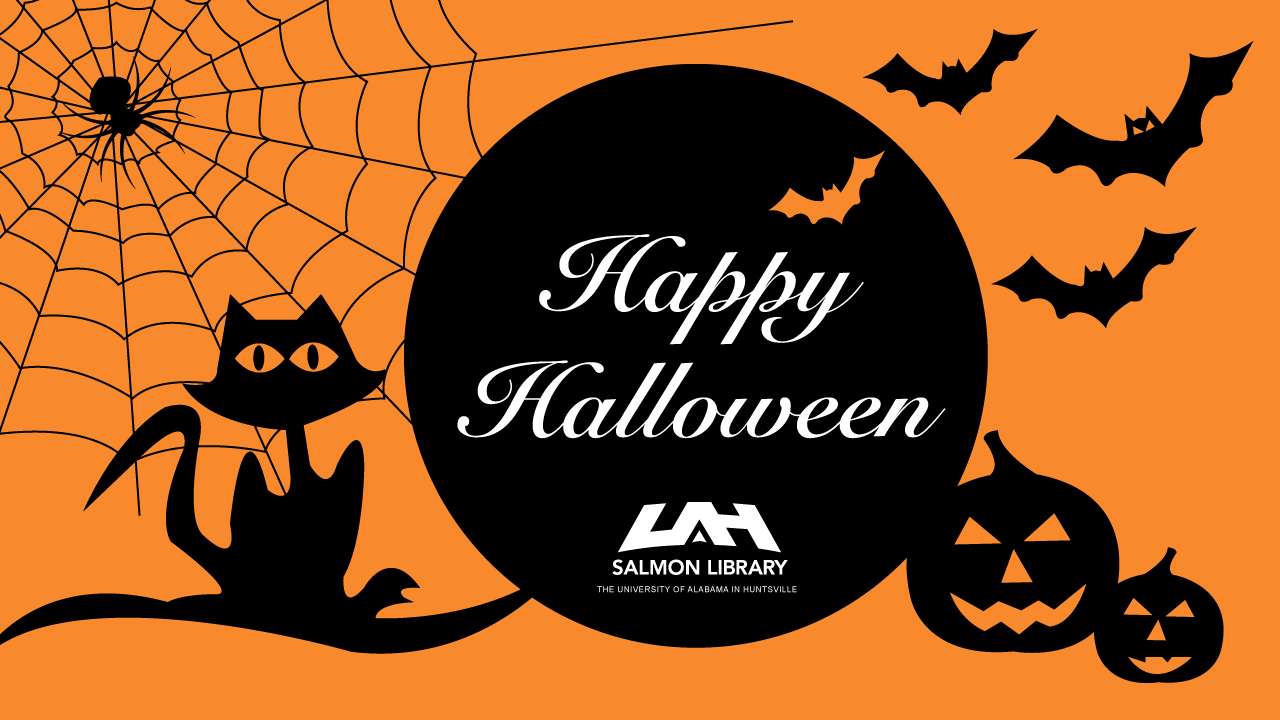
Few things beat the thrill of a well made horror story. It's in our blood, that urge to sit around a campfire and swap urban legends and ghost stories with friends and family and to touch, just for a moment, that old school fear of the dark.
Thanks to the Internet, many of the classic authors of the genre - M. R. James, H. P. Lovecraft, Algernon Blackwood, Arthur Machen, etc etc - are freely available through sites like Project Gutenberg, Ebooks @ Adelaide, and The H. P. Lovecraft Archive. Below, Doug Bolden (doug.bolden@uah.edu) has chosen five of his picks for free horror short stories to get you in the Halloween mood. Then he tossed in a short film for you, which he recommends you watch in the dark with the sound turned up.
- Arthur Machen. "The Novel of The Black Seal" (1895). The span of years from when Machen Wrote "The Great God Pan" to when he wrote "The White People", the bookends of his major contributions to the weird fiction genre [note: he dealt with mystical elements past 1900, but I am sticking to the weirder earlier ones] is less than a decade but in that time those two works, along with "The Three Impostors" (the story within a story with some story on the side that includes "The Black Seal"), were written and weird fiction would never be the same. "Black Seal" has many of the hallmarks of the stories that it helped inspire: strange locations, weird artifacts, odd people, and doomed academics. Fans of Lovecraft, especially, should try this one.
- M. R. James. "Oh, Whistle an I Will Come to You, My Lad" (1904). To many, James is the master of the ghost story. By combining modern (to him) settings, an antiquarian respect for the past, a focus on visual and tactile information over easy violence, and a hint of things being slightly off camera and unexplained, his stories tend to drive more of a quiet horror than an obvious one, but are immensely well-crafted. This story of a skeptical man on holiday is one of his most beloved. If you want more, I'd also heavily recommend "Count Magnus" and "A Warning to the Curious".
- Algernon Blackwood. "The Willows" (1907). Blackwood has a keen eye for the way to word brushes with the unknown surrounding us to maximum effect. A highly prolific writer who wrote in several genres, his ghostly and weird oeuvre alone is more than many authors achieve. "The Willows" is a fine example of the early 20th-century weird, where two men on a trip down the Danube find a strange island where something...otherworldly...is cracking against the edges of reality. If you like this one, you can try "The Empty House" for more of a traditional ghost story or "The Wendigo" for another weird fiction story that influenced H. P. Lovecraft. Speaking of...
- H. P. Lovecraft. "The Colour Out of Space" (1927). Lovecraft's impact on the horror field is nearly immeasurable, with tendrils (or is that tentacles) of his style, subject matter, locations, and strange beings drifting through so many later stories, movies, TV shows, videogames, boardgames, and so on that you basically could not list it all in any convenient fashion. The simple fact that people recognize the word Cthulhu without ever having read a Lovecraft story is a testament to this. In this earlier story, predating what is sometimes called "The Cthulhu Mythos", Lovecraft brings us a truly alien encounter as a doomed family withers away. Though it predates nuclear fallout fears, it feels like a parable for the atomic age. If you like this, "The Call of Cthulhu" and "The Shadow Over Innsmouth" will introduce you to Lovecraft's larger themes.
- Thomas Ligotti. "Nethescurial" (1991). While the first three people on this list impacted Lovecraft, Lovecraft impacted Ligotti. But much in the way that Lovecraft took some of the ideas of his literary idols and made them all his own (ok, fine, Lovecraft took a lot of "Black Seal"), Ligotti took some elements of Lovecraft, mixed them with Poe and Beckett and Camus, and created his own version of philosophically weird horror like nothing you have ever quite seen before. In this one, the very Lovecraft set-up of a strange island with a strange artifact and a strange academic and some strange writings is blended with the cost of learning too much and having to figure out your own reality in a world where sense and rational data come in snippets. Ending with the evocative, somewhat unsolvable line, "I am not dying in a nightmare," this is just a taste for Ligotti. Try "Last Feast of Harlequin" or "The Shadow at the Bottom of the World" if you want more of Ligotti's earlier weird.
Well, this list can go on all day, so let's wrap it up with a short, punchy horror film: "He Dies at the End". Turn off the lights, turn up the volume, and refuse to look away. Happy Halloween, folks!